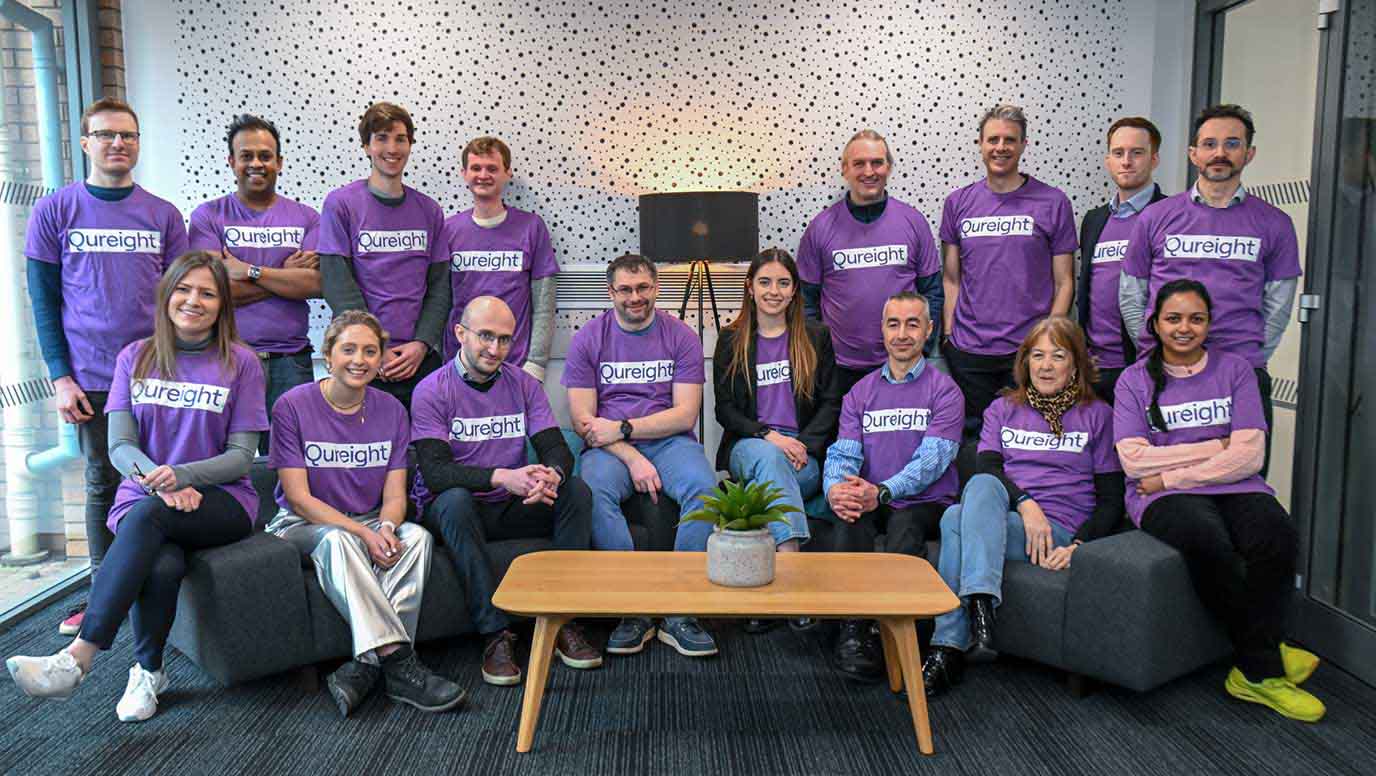Qureight raises $8.5m in oversubscribed Series A to attack $multibillion markets

Qureight’s cloud platform leverages imaging data analytics and AI technology to help the best new drugs win approval.
Its solutions can be deployed by hospitals, clinical research organisations and multinational pharma companies to find new treatments for conditions that embrace complex lung and heart disease – including killer cancers.
Hargreave Hale AIM VCT led the round, joined by XTX Ventures, Guinness Ventures and existing backers including Playfair Capital, Jonathan Milner's Meltwind, Ascension Life Fund and Cambridge Angels.
Qureight says it is initially targeting a $6.8bn, rapidly-growing addressable market for clinical trial imaging analysis and data curation in the lung and heart disease arenas.
By unlocking the power of clinical and imaging data to advance the understanding of complex disease progression, the technology is regarded as playing a pivotal role in efforts to improve outcomes for patients and extend their lives.
Complex lung and heart diseases, such as Idiopathic Pulmonary Fibrosis (IPF) and Pulmonary Hypertension, currently have limited treatment options and poor survival rates.
Typically, high-value data from patient scans and records is stored across numerous platforms and databases in an unstructured form. Researchers must manually extract relevant data from source for their research, a hugely expensive and time-consuming process. Qureight’s digital infrastructure houses and curates multiple types of medical data for powerful analysis.
The company boasts unique healthcare access through data contracts across NHS England and can collect CT scans, biomarkers and other trial endpoints directly from hospitals or clinical research organisations in real time as a complex disease drug trial progresses. This information is securely collated and structured, ready for analysis.
The insights from this analysis can be used to look for drug responses and find new endpoints. The structured data can also be used to build virtual trial patients, making it easier to run AI models and compare disparate data sets.
Ultimately, this allows for the design of more resource-efficient clinical trials, to improve existing disease treatments, and to develop powerful new drugs.
Qureight has ongoing strategic collaborations and research partnerships with some of the best-known healthcare, research and pharmaceutical companies in the world, including AstraZeneca, Vicore Pharma and several NHS Trusts.
Following the close of this round, new Qureight Board members include Dr Debra Barker, an experienced healthcare NED and Chief Medical Officer and previous SVP at Novartis, and Jenny Winter, CEO of Animalcare Group and previous VP at AstraZeneca.
Consultant Thoracic Radiologist Dr Simon Walsh, joins the Qureight team as the new Chief Scientific Officer. He was previously an NIHR Clinician Scientist at the National Heart and Lung Institute, Imperial College, London, and is the outgoing Imaging Chair at the European Respiratory Society. He is also a member of the Fleischner Society – a global group of 60 leading respiratory scientists and radiologists.
Dr Muhunthan Thillai, founder and CEO of Qureight, said: “The close of our Series A round marks the ‘end of the beginning’ and the start of a new chapter for Qureight as we turn our focus to developing our platform and creating products in new disease areas.
“Our mission to extend the lives of lung and heart disease patients will be bolstered by the invaluable expertise of our new board and new senior team members, and we are looking forward to adding to our strategic biopharma collaborations.”
Dr Debra Barker added: “Having spent the last 30 years working in drug development, I’ve experienced first hand how struggles with fragmented data – whether biomarkers or images – complicate our decision making, endpoint and study design, and frustrate our desire to advance new treatments to the right patients.
“The Qureight platform and consequent insights promise to transform this process, and I am very excited to accompany the company on its journey.”


